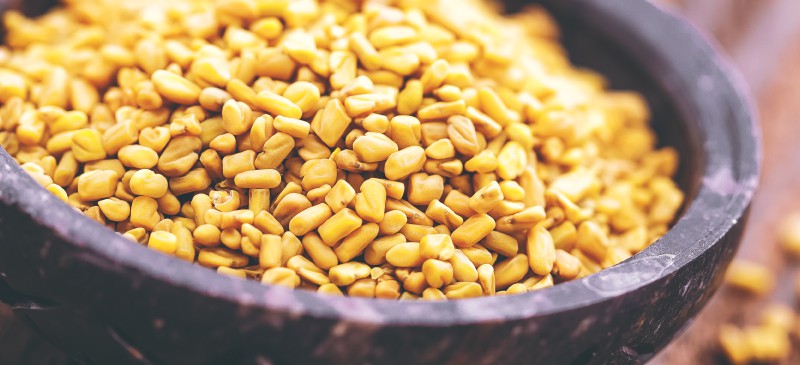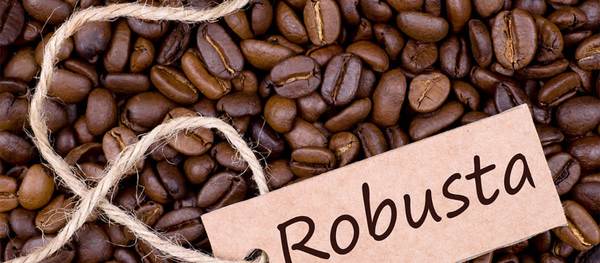|
SEARCH My Blog (Opens in new tab)
And add some fenugreek seeds ... Photo by Gábor Szűts on Unsplash Is coffee good for you? It could be, in moderation. Coffee has had a hot-and-cold reputation when it comes to health benefits. Not long ago, I was learning about the dangers of coffee: how it could raise your blood pressure, make your heart race, impair sleep, and maybe even cause bladder and pancreatic cancer. Now, it seems that drinking two to five daily cups of coffee may protect against heart disease, diabetes, and some cancers. But too much can cause problems like anxiety, nervousness, and insomnia. For whatever reason, coffee has potent benefitsOther studies have found that coffee drinkers may have a reduced risk of cardiovascular disease (including heart attack, heart failure, and stroke), type 2 diabetes, Alzheimer's disease and Parkinson's disease, colon, uterine and liver cancer cirrhosis. The reason that coffee drinking might be beneficial is unknown. The Mayo Clinic says that coffee may offer some protection against Parkinson's disease, Type 2 diabetes, liver disease, including liver cancer Heart attack and stroke. "Coffee still has potential risks, mostly due to its high caffeine content", they add. Four to five cups a day of coffee may extend lifeNow, a review of existing research suggests that a moderate approach to coffee is the best medicine. The results were published on July 23, 2020, in The New England Journal of Medicine. Based on their review of 95 studies, the authors suggest limiting total caffeine consumption from all beverages, including coffee, to 400 milligrams per day. That's equal to about four to five 250ml (8-ounce) cups of most regular coffees. This amount helps people get much of the benefit of coffee but with a lower risk of caffeine's side effects, according to the researchers. Scientists can't say for sure why coffee is healthy. The benefits are more strongly related to coffee compared with other caffeinated drinks, so they likely result from ingredients in coffee other than caffeine. A few clues: alkaloids and polyphenolsThere is interest trigonelline: a bitter alkaloid in coffee (an antioxidant but not a polyphenol). It has been linked to protecting the brain from damage, blocking cancer cells from moving around, combating bacteria, and lowering blood sugar and total cholesterol. Interestingly trigonelline is the most potent antioxidant nutraceutical in fenugreek seeds. It has been extensively studied in this context found to be beneficial in the prevention and treatment of diabetes and central nervous system disease. Research finds that trigonelline has hypoglycemic, hypolipidemic, neuroprotective, antimigraine, sedative, memory-improving, antibacterial, antiviral, and anti-tumour activities. And, it is associated with reduced diabetic auditory neuropathy and platelet aggregation. Phew! An impressive list, and perhaps a pointer to why coffee "works" for us. The potential health benefit from coffee may also be from polyphenols, which are plant compounds that have antioxidant properties. An extensive 2017 review on coffee consumption and human health in the British Medical Journal also found that most of the time, coffee was associated with a benefit, rather than harm. Coffee also contains a combination of phytochemicals, magnesium, potassium, and vitamin B, all of which have shown to lower oxidative stress and improve metabolism. Hold that order - some coffee varieties pack a bigger punchSome people metabolise caffeine faster than others and thus can consume higher amounts of coffee with no problems. You might also want to check the type of coffee. For example, coffee berries of the robusta species take a lot longer to ripen than arabica and contain about 40–50% more caffeine. In a 2012 study, arabica and robusta espressos measured in at 141-253 mg of caffeine per 100 mL - arabica at the low end and robusta at the high end. Indonesia, for example, produces mainly robusta after a disease wiped out the initial huge plantations of arabica in the late 1890s. Perhaps that's why robusta is called robusta? Robusta tends to be bitter, and some say has less flavour (but better body) than arabica. Consequently, this species is used as an inexpensive substitute for arabica in many commercial coffee blends. On the other hand, good quality robusta beans are used in traditional Italian espresso blends to provide a full-bodied taste and a better foam head (the "crema"). It's kind of ironic that the strength of robusta means that it fuels instant coffee blends - being cheaper than arabica - and top-end expressos. How about if you add sugar? Do the deadly consequences of added sugar cancel out the benefits of coffee? Forget the sugary flavourings if you want the benefitsSweet coffee and tea are the fourth largest source of sugar in the diets of adults, according to the October 2019 survey from the US Department of Agriculture. Experts say some of these drinks bear little relation to the two-calorie cup of black coffee of the past, worrying health officials. "When you talk about a drink that has that load of unhealthy fats and that much sugar, it can't possibly be a healthy beverage on balance," says Dr Jim Krieger, a clinical professor of medicine and health services at the University of Washington. "That amount of sugar alone is astronomical compared to the current recommendations of US Dietary Guidelines of 50 grams of sugar a day." When very large studies of the health benefits of coffee are conducted, those people that smoke, or add milk or sugar are often excluded from the analysis. That's because those additions reduce the safe or beneficial effects of coffee consumption. That gives you the answer to the question about sugar. The short answer is this - forget the vaguely understood benefits of coffee if you are adding sugar which has proven killer qualities. Try a dash of natural sweetenersInstead of loading up on cream and sugar, Diane Vizthum, MS, RD, research nutritionist for Johns Hopkins University School of Medicine, suggests adding up to two tablespoons of milk, milk substitute or half-and-half, and using naturally sweet spices and flavourings. Try stirring in a ¼ teaspoon of the following for extra flavour:
Coffee alone won't help you live longerThe bottom line is that coffee is just one part of your lifestyle," adds Vizthum. "Some of the factors that make a more significant impact on your health are eating a balanced diet, exercising and maintaining a healthy weight. Drinking coffee should be an addition to those key health factors." Overconsumption - keep it under 6 cups a dayIf you are already a coffee drinker, it should be reassuring that after decades of research, no firm link can be found between coffee intake and cancer and, to the contrary, several health benefits seem to accompany coffee consumption. Be aware that overconsumption of caffeine can trigger numerous symptoms, the US Food and Drug Administration says, including insomnia, jitters or anxiousness, increased heart rate, upset stomach, nausea, headache, and dysphoria (feeling unhappy). "The body generally sends powerful messages concerning coffee consumption," says Elina Hyppönen, researcher and director of the Australian Center for Precision Health at the University of South Australia Cancer Research Institute, "so individuals must listen to these messages while consuming coffee". In March 2019, the American Journal of Clinical Nutrition published a study suggesting that six cups of coffee may be the tipping point for the risk of developing cardiovascular disease. As with so many things, moderation appears to be the key. Keeping tabs on your daily cups of joe can ensure your health gets a jolt without overdoing it. Play safe; enjoy your 400 mg a dayHere's how to visualise 400mg - a single shot espresso is about 40ml, according to the Espresso Guy. This shot contains about 60 to 80ml of caffeine, and you can check with this neat interactive calculator from Caffeine Informer. So 4 to 5 espressos, and you have hit the limit. About four 250ml cups, and you have also hit the recommended daily dose. Enjoy them. Keep moving, exercising, and eating well - including plenty of leafy greens, and healthy fats. During summer I run 2.5km at about 6 am to my local coffee shop. I have a short macchiato, and then head back up the trail to home and start work. I sometimes don't count that first one as I figure the running is a bonus against the ill-effects of one extra cup. I'm off now for my 3rd cup for the day. Tip: Here are four ways you can consume fenugreek seeds: > More posts to help you with EXERCISES > More posts to help you with DIABETES > If you are a @MEDIUM reader my publication Body Age Buster has hundreds of categorised posts which I have written especially for men and women over 50. Follow me on Quora for more health and fitness tips.
If you valued this article >> Follow me Leave a comment >> Share it >> Stay healthy If you have any questions email me and I will get back to you. Latest: get your free customised fitness plan designed uniquely for you.
|
ChoicesSince I was diagnosed at 50 with Type 2 diabetes I've been learning how to do bone-building fitness training which lowers my age. You can too. It's your choice. Walter Categories
All
Archives
May 2023
|


 RSS Feed
RSS Feed 


